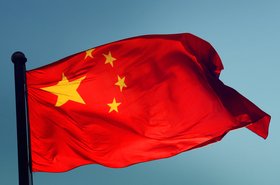Baidu has said its long-term business plan is modeled on the assumption the company won’t be able to access leading-edge GPUs for AI applications due to US export controls.
But Robin Li, co-founder and CEO of the Chinese tech giant, said that despite the restrictions placed on the purchase of cutting-edge AI chips by Washington, the user experience offered by Baidu “will not be compromised.”
Baidu saw its total revenue from generative AI and foundation model-related businesses totaled RMB656 million ($91 million) in Q4 2023.
Answering a question about the impact of the sanctions on the company’s AI development, and how it might impact Baidu’s ability to keep up with its global peers, Li told analysts on the company's earnings call that in the near term, the impact is “minimal for [Baidu’s] model development, product reinventions or monetization.”
He added: “As I mentioned last quarter, we already have the most powerful foundation model in China, and our AI chip reserve enables us to continue enhancing Ernie [the company’s LLM] for the next one or two years.”
Conceding that the company is unlikely to have access to the most cutting-edge GPUs in the long term, he said Baidu has the most “efficient homegrown software stack,” with its self-developed, end-to-end four-layer AI stack and strong R&D team providing the company with a “unique competitive advantage” over what its domestic peers.
Li didn’t comment on whether the restrictions would place the company at a disadvantage when compared to its global peers. His comments were first reported by The Register.
The US is currently engaged in a trade war with China and has imposed controls on the export of some of types of chip to the country to stop it from developing advanced AI systems and to prevent it having access to technology that could be used for military modernization and human rights abuses.
The rules also prohibit US businesses from trading with non-US companies that are exporting the restricted technology to China, which means organizations such as Nvidia, AMD, Arm, TSMC, and ASML are now prohibited from selling into what was previously a significant market for them.
In August 2023, it was reported that Baidu, ByteDance, Tencent, and Alibaba planned to spend $1bn on chips that will be delivered that year, with an additional $4bn earmarked for chip spending in 2024.







